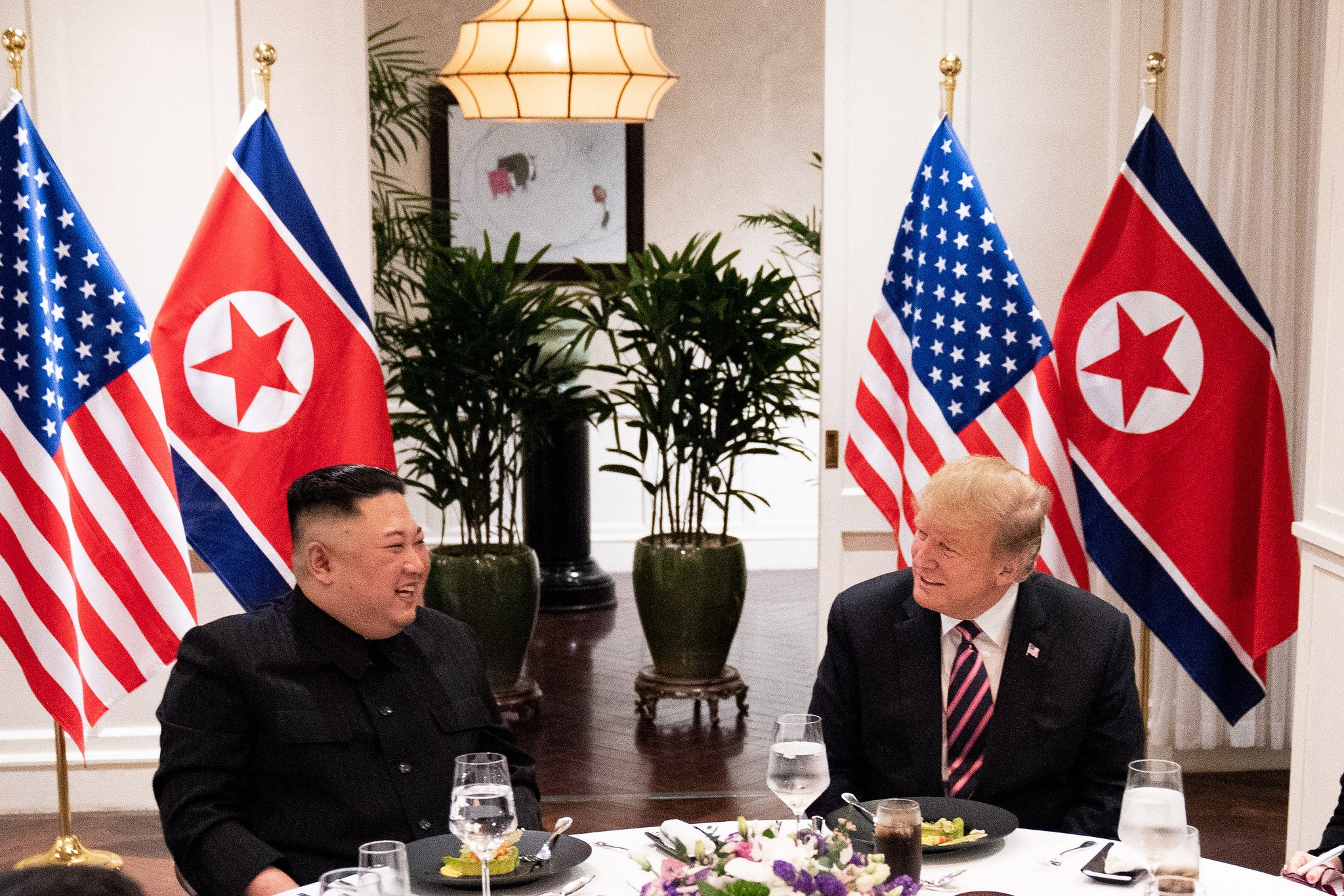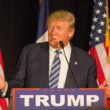On the eve of Trump’s first meeting with Kim Jong-un in May 2018, the nuclear policy veteran Robert Alvarez wrote with skepticism in The Spectator about the prospects for meaningful achievements from the summit process.
A former senior policy advisor to the Secretary of the Energy Department who led DOE teams to secure weapons material at North Korea’s nuclear site, Alvarez reported that North Korea wanted to be recognized and treated as a nuclear weapons state with potential long-range missiles. He noted Kim was willing to discuss nuclear arms control on a step-by-step basis, and that denuclearization, in the eyes of North Korea, meant “a process in which North Korea will no longer be a U.S. nuclear target and the United States will reduce its military presence in the region over a period of several years.”
Following the collapse of the Second Summit in late February of this year, we asked Alvarez for comment on the administration’s overture to North Korea, as well as the recently reported attempts by the Saudis to acquire weapons-capable nuclear technology, and the apparent role of Jared Kushner, the President’s son-in-law, in those transactions.
A lot has already been said about the Hanoi meeting flop. My Spectator piece last year pretty much foretold what the future held. Trump, staffed by Bolton (his “polarizing new national security advisor”) and Secretary of State Pompeo, pushed for the same “all or nothing” deal as G.W. Bush, with the same predictable result.
This time around, Trump was obviously fixated on Michael Cohen’s testimony, staying up all night watching the House Government Oversight hearing, and he probably wanted to get out of Hanoi as soon as possible. He said as much by blaming the hearing as a big factor in the failed summit.
The big difference from the past is that Trump removed regime change from the table and deflated the nuclear brinksmanship threat, which overall are positive developments. The big questions are: will Bolton walk Trump back, ending further summits? And will Trump’s love affair with Kim end badly?
Less than a week after the collapsed talks, reports of the restarting of a missile testing site the North Koreans had previously promised to dismantle do not bode well. Given Bolton and Pompeo’s bellicose proclivities—and despite Trump’s assertions to the contrary—resumption of joint U.S./South Korean military exercises may still be in the cards, delivering a blow to newly kindled hopes for an end to the nearly 70-year Korean War.
With respect to the Saudis’ nuclear ambitions, the push for Westinghouse and U.S. nuclear business is largely mythological. The U.S. lost domestic ownership of two of its remaining reactor vendors (G.E. & Westinghouse) to Japanese companies several years ago. Westinghouse remains in business by maintaining and fueling existing reactors. It’s vaunted new AP-1000 reactor business is in trouble because of cost overruns, delays, and technological problems. China, considered the world’s biggest market for nuclear power, is getting cold feet after it just started up an AP-1000 after a large delay and major cost inflation. Two out of 4 AP-1000 reactors in the U.S. were cancelled for the same reasons.
After bringing its parent company, Toshiba, to the brink of collapse, Westinghouse filed for bankruptcy, and was purchased in early 2018 by Brookfield Business Partners, a Canadian asset management firm. Brookfield’s parent company has been implicated in the bail out of Jared Kushner’s white elephant at 666 Fifth Avenue in New York City, with funds provided by Qatar. Brookfield has also downsized Westinghouse in Pittsburgh to focus on existing reactors.
The Trump administration is still pushing for a deal with the Saudis, which requires Congressional approval. The Saudis want the U.S. to support their quest for uranium enrichment and chemical recovery of plutonium from used reactor fuel (reprocessing), the key technologies for nuclear weapons production. Such an arrangement would go against long-standing U.S. policy and growing congressional opposition.
The other competitors for Saudi business, (French, Russian, and the South Koreans) have their own problems. France is backing out of its domestic nuclear business, and its efforts to commercialize its reactor industry have failed. South Korea, which sold a reactor to the UAE, is facing serious issues that have stalled the new reactor start-up. South Korea has a long-standing agreement with the U.S. to not enrich or reprocess.
Russia’s business model, going back to the Soviet era, involves providing a guaranteed supply of fuel and taking back used spent nuclear fuel to Russia, steps that discourage uranium enrichment and reprocessing. It’s difficult to believe that Russia will go along with Saudis’ quest for weapons technologies, given its reactor deals with Iran, and the heavy lifting it has done in support of the Iran nuclear agreement.
The people who stand to profit from this deal are the middlemen (former generals and lobbying consortia) who are looking to get rich regardless if a single uranium atom is split by the Saudis.
A senior scholar at the Institute for Policy Studies, Robert Alvarez served as senior policy adviser to the Energy Department’s secretary and deputy assistant secretary for national security and the environment from 1993 to 1999. During this tenure, he coordinated the Energy Department’s nuclear material strategic planning and established the department’s first asset management program.






0 Comments